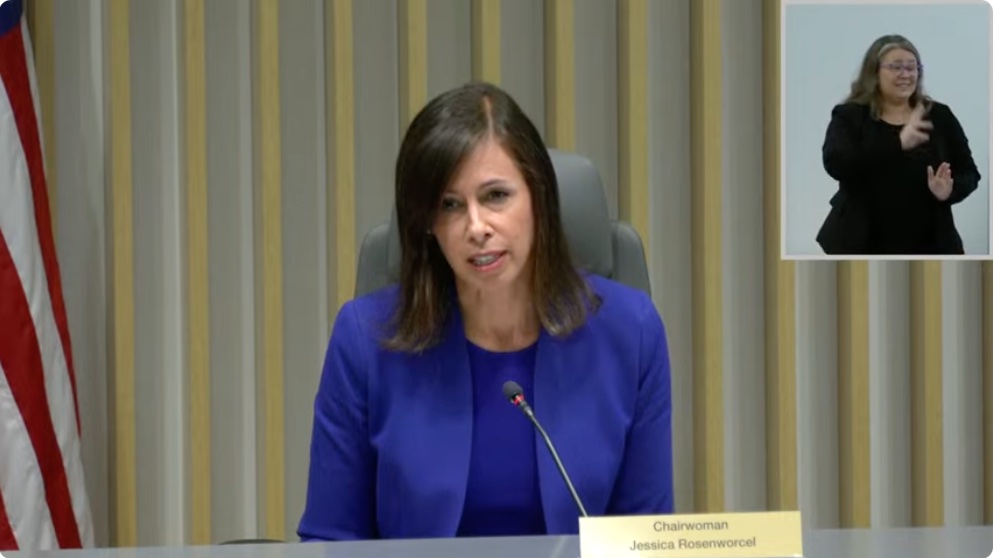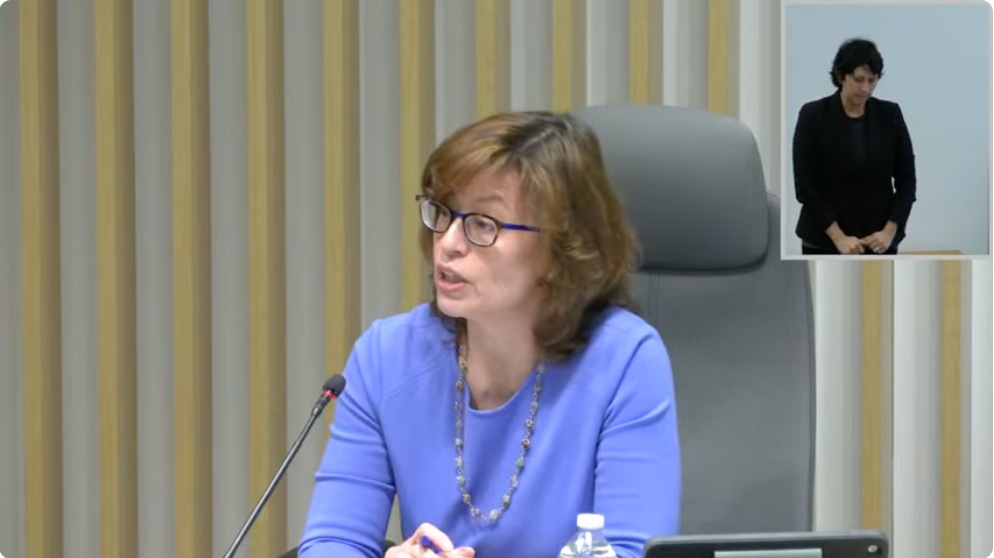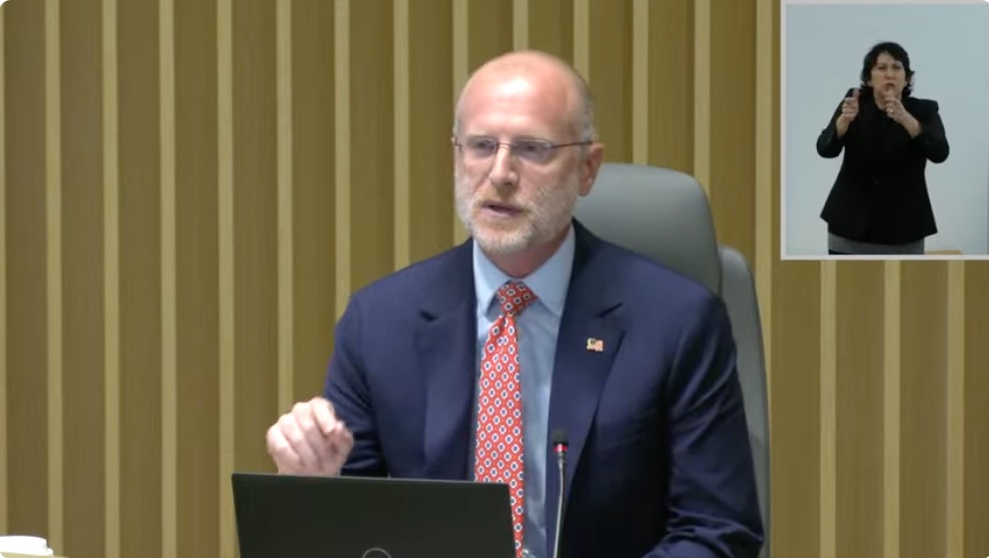FCC Reasserts Authority Over Internet Access
Democrats launch effort to restore Title II-based net neutrality rules

The smarter way to stay on top of the multichannel video marketplace. Sign up below.
You are now subscribed
Your newsletter sign-up was successful
The Federal Communications Commission has voted 3-2 to begin the process of giving utility-style authority to regulate broadband access by reclassifying broadband as a Title II telecommunications service subject to some common-carrier regulations and then restoring bright-line rules against blocking, throttling and paid prioritization.
“Today, there is no expert agency ensuring that the internet is fast, open, and fair,” FCC chair Jessica Rosenworcel said. “And for everyone, everywhere to enjoy the full benefits of the internet age, internet access needs to be more than just accessible and affordable. The internet needs to be open.”
Broadband access is currently classified as a Title I information service under the Communications Act of 1934, and thus not subject to mandatory access or other common-carrier regulations.
The proposed Title II-based rules prevent blocking, throttling or “anti-consumer” paid prioritization of internet access by internet service providers. The FCC is also restoring the internet conduct standard by which it could review conduct not prohibited by those rules — like zero-rating plans — but that could adversely affect internet openness and access to content.
Republicans fear that vague standard could give the FCC broad, and unchecked, regulatory power over the internet.
At its monthly public meeting Thursday (October 19), the FCC approved a notice of proposed rulemaking (NPRM) that would do all that. It was the first meeting with new Democrat Anna Gomez, and so the first meeting at which Rosenworcel could get the three Democratic votes needed to launch the rulemaking.

The attempted restoration of the FCC's broadband access regulatory authority is just the latest in a years-long cycle of Title II vs. Title I debate and reclassification and rule-setting and un-setting.
The smarter way to stay on top of the multichannel video marketplace. Sign up below.
The Democrat-led FCC adopted net neutrality rules in 2015, which were repealed two years later by a Republican-led commission.
The FCC's latest attempt to restore the rules begins a period of public comment, including legislators saying they need to step in to clarify the FCC's broadband regulatory authority under either Title II (Democrats) or Title I (Republicans). But given the current state of congressional dysfunction, the FCC looks like it will continue to be the place where this particular brand of regulatory sausage is made.
If past is prologue, though, and the Democratic-led FCC decides to reregulate broadband, a decision won't come for several months. That decision will then almost certainly be appealed to the FCC, taken to court or both.
A federal court upheld the previous Republican-led FCC’s December 2017 elimination of the rules.
This time around, Democrats are essentially arguing that given all that has happened since the rules were eliminated — the COVID-19 pandemic that accelerated the move online and national security threats to networks among them — the FCC does need the sort of regulatory muscle that Title II (common-carrier) authority gives it over last century's must-have communications technology, traditional phone service, only without the phone-style rate regulation that is pretty much the third rail of broadband policy.
“This is not a stalking horse for rate regulation. Nope. No how, no way. We know competition is the best way to bring down rates for consumers.”
Jessica Rosenworcel, FCC
The FCC will also not assert Title II authority to unbundle networks.
But Democrats want affordability and the related issue of equity to be part of the access equation, which Republicans worry will mean some form of back door rate regulations via a “just and reasonable” price standard.
Rosenworcel tried to reinforce the no rate regulations part of the item. “This is not a stalking horse for rate regulation. Nope. No how, no way. We know competition is the best way to bring down rates for consumers.”
Said Republican commissioner Brendan Carr: “We should not spend our time staring into the regulatory rear-view mirror or relitigating disputes that have long since passed from relevancy. Yet that is precisely what the agency does today with Title II.

“I would encourage my colleagues to change course and focus the FCC’s work on the numerous, important subjects that Congress has authorized the Commission to address — from rural broadband to spectrum to universal service reform,” Carr continued. “Heading down the path to Title II will not only push vital FCC matters onto the back burner, it will knock many of them off the stove altogether.”
Gomez said the effort was not about controlling the internet or its rates, but about getting input on how best to create a needed national regulatory framework to make sure the internet remains accessible, secure, open and available, including to historically underserved communities. Gomez, who is Hispanic, delivered her open meeting remarks in both English and Spanish.
Republican commissioner Nathan Simington called the Title II reclassification effort unnecessary, dangerously overbroad, and unlikely to pass judicial muster.
Democratic commissioner Geoffrey Starks said: “It’s a framework that puts users in charge of what they do online — and not the companies they pay for a connection. It’s a framework that protects consumers in their use of an essential service instead of simply trusting ISPs to do the right thing.“
Friends and Foes Weigh In
There was plenty of outside reaction to the vote.
“With today’s vote, the FCC unfortunately has placed politics over sound policy and fiction over facts, and we are now embarking on yet another unnecessary and distracting net neutrality proceeding,“ Michael Powell, president and CEO of NCTA: The Internet & Television Association, said. “By introducing the most sweeping command and control framework ever imposed on broadband networks, the FCC’s proposal is a monumental change in how the internet will be regulated and will dramatically affect how it will work going forward.”
Powell is a former FCC chair who effectively mapped out the FCC’s internet openness blueprint in a 2004 speech laying out four key internet freedoms.
“[T]oday’s proposed agency action will go down in history as one of the most egregious overreaches in regulatory history,” Free State Foundation president Randolph May said. “Rather than “net neutrality,” the proposed strict government control of Internet providers by the imposition of public utility regulation might more properly be called 'net neutering.’”
Benton Institute for Broadband & Society senior counselor Andrew Jay Schwartzman offered a different perspective. “The laws governing U.S. telecommunications have not changed over the last several years,” he said of the FCC vote. “What has changed is the public’s understanding of the critical need for fully functional and reliable high-speed internet access. The COVID epidemic and the changing national security environment, among other things, demonstrate how essential it is for the FCC to restore the protections afforded under Title II of the Communications Act to broadband.”
In the run-up to the FCC’s elimination of the rules, the debate became heated, with protests and even death threats against commissioners and a bomb scare that interrupted the vote to eliminate the rules back in 2017.
“Seven years ago, the world was promised a digital apocalypse when the Pai FCC repealed ‘net neutrality’ regulations,” said Evan Swarztrauber, senior adviser at the Foundation for American Innovation and former adviser to Trump-era FCC chair Ajit Pai [whose FCC eliminated the rules] and commissioner Brendan Carr. “Those false flames of fear contributed to an environment that led to death threats against FCC Commissioners and their families and a bomb threat called into the Commission on the day of the repeal vote. Not only did the predictions fail to materialize, but America’s internet got faster, more available, more competitive and cheaper when adjusted for inflation. [S]o here the FCC goes again — hitting the pingpong ball across the table for another waste of time and taxpayer resources that has a very good chance of being struck down at the Supreme Court.”
Contributing editor John Eggerton has been an editor and/or writer on media regulation, legislation and policy for over four decades, including covering the FCC, FTC, Congress, the major media trade associations, and the federal courts. In addition to Multichannel News and Broadcasting + Cable, his work has appeared in Radio World, TV Technology, TV Fax, This Week in Consumer Electronics, Variety and the Encyclopedia Britannica.

